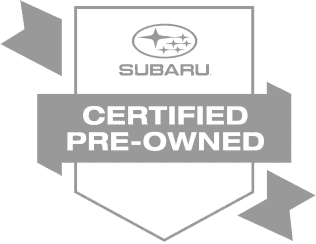

It's just common sense that a volatile liquid like gasoline needs to be treated with care. On modern cars, the gas tanks and fuel systems are tightly sealed to prevent fumes from leaving the filler neck and ensure it's all burned up in the engine. So, if you can smell gas as you drive or see gasoline dripping from your vehicle, you want the attention of a trained technician right away. Below, we'll answer some of the most frequently asked questions about damage to your vehicle's gas tank and other related components.

5. Can Running Out Of Gas Damage Your Car?
Running out of gas is simply not a good idea under any circumstances. It's never safe for your car to suddenly stop running when it's on the road. But modern cars can even become damaged if you run completely out of fuel. Most modern fuel pumps need to be cooled and lubricated while they're running, and the fuel flowing through the pump also serves as the lubricant. When the tank runs completely dry, the fuel pump will suck air which may cause damage to the pump.

4. Can Sugar In The Fuel Tank Damage The Engine?
A common urban legend has it that would-be saboteurs can ruin your engine simply by putting sugar in the gas tank. At least in modern cars, this isn't exactly the case. Sugar can cause damage, but it probably won't ruin the engine. That's because sugar doesn't dissolve in gasoline -- meaning it just settles to the bottom of the tank. Your fuel filter should catch any sugar that does manage to make it into the fuel lines. You'll just need the tank dropped to remove any sugar and a new fuel filter installed.
A more pressing concern is water getting in the engine. Most gas stations take precautions to prevent water from getting into the gas that the pumps disperse into your gas tank and ultimately your engine. But if rain water did manage to get into the fuel tank of your car, it can cause damage to the vehicle's fuel injection system and fuel pump.

3. How Can I Detect A Fuel Leak?
If your fuel lines or fuel tank are leaking, you might see a puddle of liquid gasoline beneath your car after it's been parked. But you may not. Small gasoline leaks might simply evaporate before you notice it. What you're more likely to detect is the smell of gasoline. If your fuel cap is working correctly, you should never be able to detect the smell of fuel as you drive. If you do smell gas from your car, it probably means you've got a fuel leak somewhere, which could be coming from the fuel tank.
2. Is It Safe To Drive With A Fuel Leak?
Short answer: no. Because gasoline is so flammable, a leak means your car is at an elevated fire risk. Don't drive any further than absolutely necessary to reach a safe spot off the road, get a tow to our dealership service department as soon as possible and -- whatever you do -- don't smoke in a vehicle with a fuel leak. The fumes could catch fire, spreading fire to the liquid gas which sets your whole vehicle ablaze! It's unlikely, but gasoline is a volatile chemical that you don't want to mess with.
1. Can My Leaking Fuel Tank Be Repaired?
Yes! If our technicians can locate the source of a fuel leak in your car's tank, they can often weld or patch it shut. However, if the tank has a big rupture or is leaking due to rust and corrosion, repairing the fuel tank isn't a smart or safe idea. Instead, you'll need the entire tank replaced to provide safe, reliable transportation.
Related Articles
- More Things You Should Know About Your Subaru
- Things to Know if You Smell Gas Inside Your Vehicle
- Things to Consider When Choosing Where to Get Gas
- Things to Know About Your Vehicle's Fuel System


Capitol Subaru of Salem
920 Auto Group Ave NE
Salem, OR 97301
- Sales: 503-587-5500
- Service: 503-587-5500
- Parts: 503-587-5500






